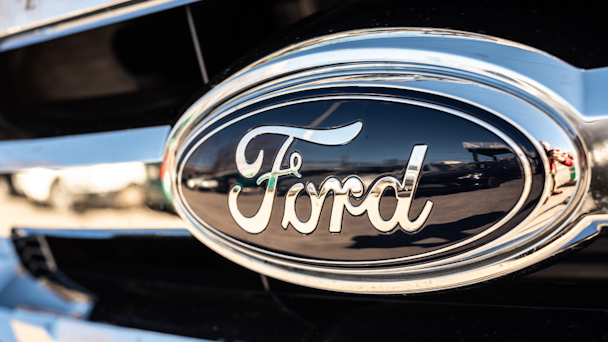Ford to pay $19.2m in false advertising settlement over fuel efficiency claims
American automaker Ford is on the hook for millions after it made false claims about both the fuel efficiency of its hybrid C-Max and the payload capacity of its Super Duty truck.

Ford is paying up after an investigation found it falsely advertised the fuel economy and payload capacities of two models / Adobe Stock
Ford Motor Company has agreed to pay $19.2m in a multi-state settlement over false advertising allegations. The settlement was announced today by 40 state attorneys general and the District of Columbia, all of whom were involved in the case.
The investigation revealed that the automotive manufacturer made false claims about the fuel economy and payload capacity (the maximum weight that a given vehicle can safely carry) of some of its hybrid and pickup truck models between 2013 and 2014.
In particular, the case concerns Ford’s 2013 decision to lower the advertised fuel economy ratings on its C-Max compact hybrid vehicle. In essence, the company put out advertising that misrepresented the distance that a driver could cover on a single tank of gas in the C-Max and claimed that driving style would not impact the automobile’s real fuel economy. The company also claimed in its marketing that the vehicle offered better fuel economy than competitors’ hybrid models.
These issues were evidenced in Ford’s ad campaign for the vehicle, ‘Hybrid Games’, which pitted the C-Max against the Toyota Prius in a series of videos. The ads suggested that the C-Max got 47 miles per gallon (mpg) both on freeways and in urban settings. In reality, however, the C-Max’s fuel economy rating sat closer to 42 mpg in urban areas and 37 mpg on the highway.
The suit also claims that Ford used deceptive tactics to snag a “Best-in-Class” payload capacity title for its Super Duty truck, when, in reality, competitors’ models had actually surpassed the Super Duty’s performance. Acting New Jersey Attorney General Matthew Platkin explained to Reuters: "In calculating the maximum payload capacity of its vehicles…Ford employed a truck configuration it did not actually intend to sell to individual buyers — one that omitted such standard items as the spare wheel, tire and jack, radio and center console (which was replaced by a mini-console).” In doing so, the company was able to add more weight to its marketable payload capacity and therefore reclaim the “Best-in-Class” payload award on these false premises.
The settlement not only requires Ford to pay up, but also bars the company from making further false or misleading claims about the estimated fuel economy or payload capacity of any new model in its advertising.
Ford’s reaction to the settlement
As part of the settlement, Ford did not admit to any wrongdoing. A Ford spokesperson tells The Drum: “We are pleased that the matter is closed without any judicial finding of improper conduct. We worked with the states to resolve their concerns and in the process limited additional investigative costs and legal expenses for all parties.”
The spokesperson also noted that when it came to the company’s attention that some 2013 and 2014 models had incorrect fuel economy label values, Ford “voluntarily” notified the US Environmental Protection Agency (EPA) and reimbursed customers who bought or leased vehicles with inaccurate labels during and after the time in which the fuel economy was being falsely advertised.
The spokesperson also pointed out that Ford follows the standards set by the EPA and other regulatory bodies’ standards for fuel economy labels and advertising and emphasizes that vehicle performance claims made by the company can be trusted.
Still, some want to call attention to the broader negative economic impacts that false advertising claims can have on consumers, regardless of whether such issues are remedied in the aftermath. “Families across Pennsylvania are pinching pennies to afford gas right now,” said Pennsylvania Attorney General Josh Shapiro in a statement today. “Some may even be considering purchasing a more fuel efficient car, and when making that purchasing decision, they rely on the information manufacturers give out about fuel economy. Ford can’t be permitted to jack up the numbers where they like in order to make their hybrid vehicle look the best. Consumers deserve to have the facts in order to make a fully informed decision.”
Despite the settlement, some advertising experts aren’t convinced that the settlement will do much to harm the carmaker’s reputation in the long run. “I don’t think much is going to happen to Ford — their voice is too loud and the brand is too established,” says Robert Passikoff, chief executive and founder of marketing consultancy and research firm Brand Keys. “They got caught and they are paying it off. Those millions are only pocket change to them. There won’t be a big overall effect in terms of the brand. It will hurt for this news cycle and then it’s onto something else.”
Others are more skeptical. "This was an expensive mistake that will impact their reputation in this particular product category for a while," says Dr Karen Freberg, a marketing expert and professor of strategic communication at University of Louisville. "With the rising costs across the board, people are looking for brands like Ford for hybrid products, and if they are not doing what they are supposed to, that’s a business and reputation issue."
Freberg points out that, for the hybrid and electric vehicle industry in particular, the risks of overpromising can run high — she cautions brands to be mindful and meticulous when it comes to communicating the benefits of their products. "This should be something other brands who want to get more involved with the hybrid model category should note...to make sure their messages align with their product promises. We cannot overpromise or elaborate on what our products do for consumers if it is not true. This is a case for others to watch and learn from for the future."

